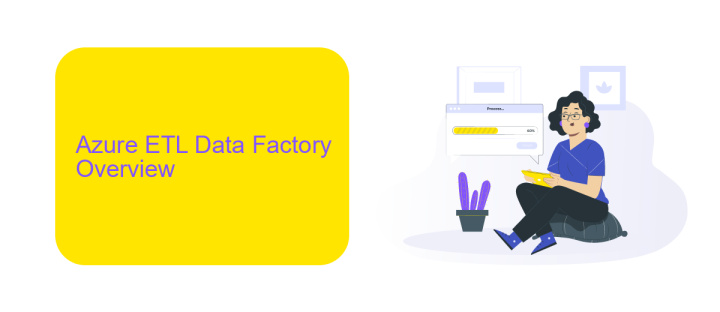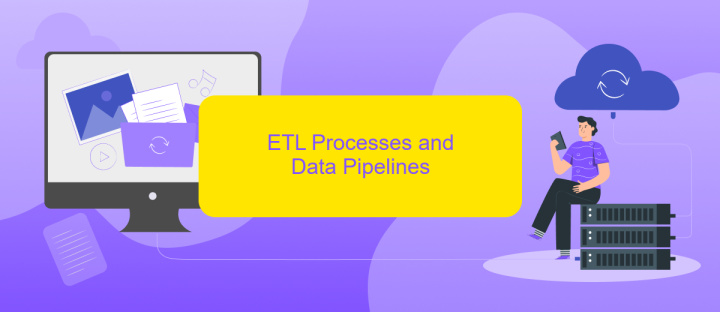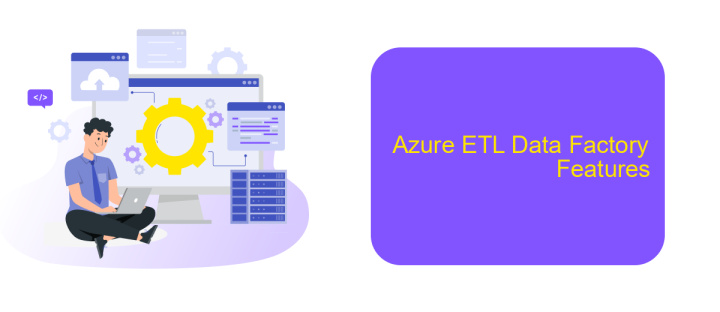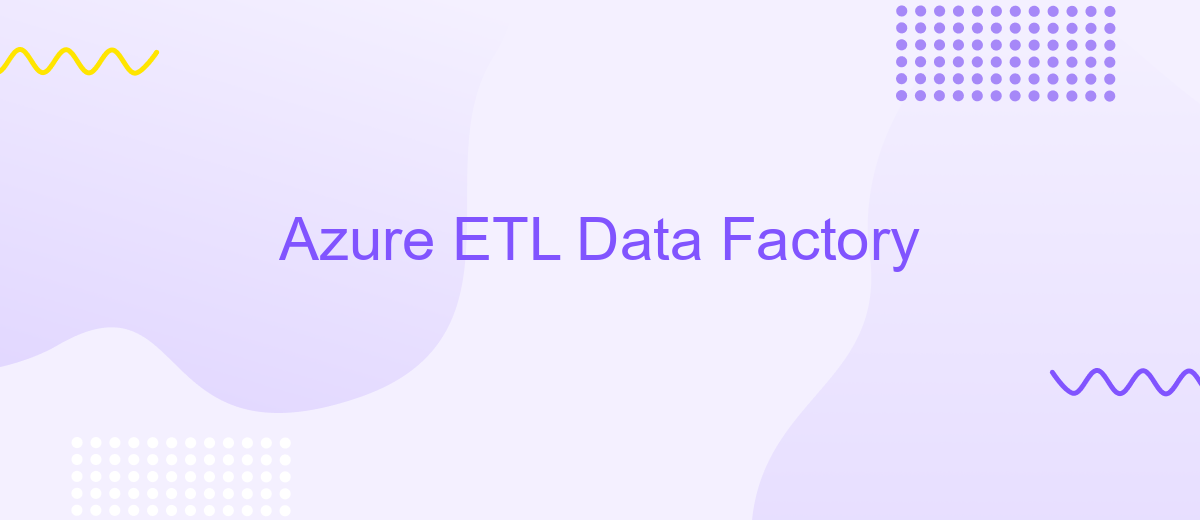Azure ETL Data Factory
Azure Data Factory (ADF) is a cloud-based data integration service that enables you to create, schedule, and orchestrate Extract, Transform, Load (ETL) workflows. With its user-friendly interface and robust capabilities, ADF simplifies the process of moving and transforming data from various sources to a centralized data store, making it an essential tool for modern data management and analytics.
Introduction
Azure Data Factory (ADF) is a cloud-based data integration service that allows you to create, schedule, and orchestrate data workflows. It enables organizations to extract, transform, and load (ETL) data from various sources to destinations, making data management more efficient. ADF supports a wide range of data sources, including on-premises databases, cloud storage, and SaaS applications.
- Seamless integration with multiple data sources and destinations
- Scalable data transformation capabilities
- Built-in monitoring and management tools
- Support for both code-free and code-based ETL pipelines
Using Azure Data Factory, businesses can streamline their data workflows and improve data consistency and reliability. For enhanced integration capabilities, services like ApiX-Drive can be utilized to connect ADF with various applications and automate data transfers. This combination ensures that data is always up-to-date and accessible, empowering organizations to make data-driven decisions effectively.
Azure ETL Data Factory Overview

Azure ETL Data Factory is a cloud-based data integration service that allows you to create data-driven workflows for orchestrating and automating data movement and data transformation. With its intuitive interface, you can quickly build complex ETL processes that connect to various data sources, both on-premises and in the cloud. The service supports a wide range of data formats and can handle large volumes of data, making it an ideal solution for organizations looking to streamline their data integration and transformation tasks.
One of the key features of Azure ETL Data Factory is its ability to integrate seamlessly with other Azure services and third-party tools, such as ApiX-Drive. ApiX-Drive enables users to set up integrations between different applications without requiring extensive coding knowledge. This makes it easier to connect Azure Data Factory with various data sources and destinations, allowing for a more efficient and automated data workflow. By leveraging these integrations, businesses can ensure that their data is always up-to-date and readily available for analysis and decision-making.
ETL Processes and Data Pipelines

Azure Data Factory (ADF) is a cloud-based data integration service that enables the creation, scheduling, and orchestration of ETL (Extract, Transform, Load) workflows. These workflows, also known as data pipelines, allow organizations to move and transform data from various sources to destinations, ensuring that data is consistently and reliably processed.
- Extract: Data is extracted from multiple sources such as databases, APIs, and file systems.
- Transform: Extracted data is transformed using various operations like filtering, aggregating, and joining to meet business requirements.
- Load: Transformed data is loaded into target systems such as data warehouses, data lakes, or analytics platforms.
To streamline the integration process, services like ApiX-Drive can be utilized alongside ADF. ApiX-Drive simplifies the connection between different applications and data sources, allowing seamless data flow and reducing the complexity of integration tasks. This ensures that the ETL processes are efficient, scalable, and adaptable to changing business needs.
Azure ETL Data Factory Features

Azure Data Factory is a robust cloud-based ETL (Extract, Transform, Load) service designed to handle complex data workflows. It allows organizations to efficiently manage and transform data from various sources into meaningful insights, facilitating better decision-making processes.
One of the key features of Azure Data Factory is its integration capabilities. It seamlessly connects with a wide range of data sources, including on-premises databases, cloud storage, and SaaS applications. This ensures that data can be easily ingested, processed, and moved across different environments.
- Scalability: Automatically scales to handle large volumes of data.
- Data Integration: Supports over 90 built-in connectors for diverse data sources.
- Orchestration: Manages complex workflows with ease.
- Monitoring: Provides real-time monitoring and alerts for data pipelines.
- Security: Ensures data protection with advanced security features.
For those looking to enhance their ETL processes with additional integrations, services like ApiX-Drive can be a valuable addition. ApiX-Drive offers easy-to-use tools for setting up and managing integrations, enabling seamless data flow between various applications and services.
- Automate the work of an online store or landing
- Empower through integration
- Don't spend money on programmers and integrators
- Save time by automating routine tasks
Conclusion
In conclusion, Azure ETL Data Factory offers a robust and scalable solution for managing complex data workflows. Its ability to seamlessly integrate with various data sources and destinations ensures that organizations can efficiently handle their data transformation needs. The platform's user-friendly interface and extensive set of features make it accessible for both technical and non-technical users, enabling them to design, deploy, and monitor ETL processes with ease.
Moreover, leveraging third-party integration services like ApiX-Drive can further enhance the capabilities of Azure ETL Data Factory. ApiX-Drive simplifies the process of connecting various applications and automating data workflows, allowing businesses to streamline their operations and focus on deriving insights from their data. By combining the strengths of Azure ETL Data Factory with ApiX-Drive, organizations can achieve a more comprehensive and efficient data management strategy.
FAQ
What is Azure Data Factory?
How does Azure Data Factory handle data transformation?
Can Azure Data Factory integrate with third-party services?
What types of data sources can Azure Data Factory connect to?
How can I monitor and manage my data pipelines in Azure Data Factory?
Routine tasks take a lot of time from employees? Do they burn out, do not have enough working day for the main duties and important things? Do you understand that the only way out of this situation in modern realities is automation? Try Apix-Drive for free and make sure that the online connector in 5 minutes of setting up integration will remove a significant part of the routine from your life and free up time for you and your employees.


